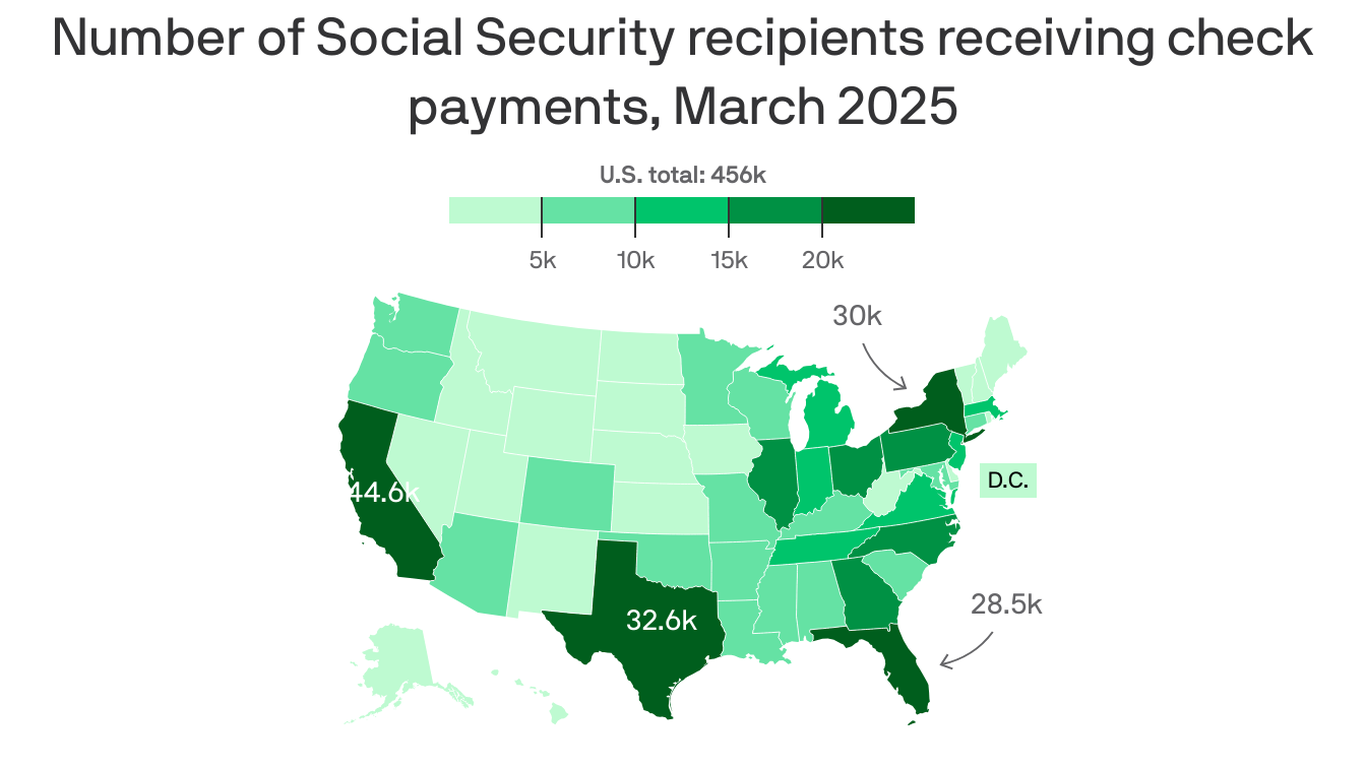
The End of an Era: Social Security’s Transition to Direct Deposit
For generations, the arrival of a Social Security check in the mailbox has been a familiar and reassuring ritual for millions of Americans. This tangible symbol of retirement security, a monthly reminder of years of contributions, is about to undergo a significant transformation. A recent directive mandates a nationwide shift away from paper checks, impacting a substantial portion of the population and sparking considerable debate.
The change, while seemingly simple, carries profound implications for hundreds of thousands of individuals. Specifically, nearly half a million beneficiaries currently receive their Social Security payments via paper check. This group, often comprising older Americans or those with limited technological access, faces a major adjustment. For some, the transition will be relatively smooth; for others, it could represent a considerable challenge.
The primary driving force behind this initiative is modernization and efficiency. The government argues that eliminating paper checks will significantly reduce administrative costs and streamline the payment process. Direct deposit, the preferred method for the overwhelming majority of recipients, is seen as faster, more secure, and less prone to errors or delays. From the government’s perspective, this shift represents a smart, fiscally responsible move in line with broader efforts to optimize government operations.
However, the human cost of this technological upgrade cannot be overlooked. The transition poses significant hurdles for those who lack bank accounts or are unfamiliar with online banking. Many older Americans, accustomed to the familiarity of receiving their checks in the mail, may find the switch confusing and potentially disruptive to their carefully managed budgets. Moreover, the shift necessitates a degree of technological literacy that not everyone possesses. For some, setting up direct deposit might require assistance from family, friends, or community organizations, adding an extra layer of complexity to an already potentially stressful process.
The potential for financial vulnerabilities is a critical concern. Without a bank account, recipients risk losing access to their funds entirely, leaving them vulnerable to financial hardship. Moreover, the shift to digital payments necessitates a level of trust in online banking security that may not be shared by everyone. Addressing these concerns requires a robust and accessible support system to assist those struggling with the transition.
The government acknowledges these challenges and has pledged to provide assistance to affected individuals. Public awareness campaigns, outreach programs to vulnerable populations, and partnerships with community organizations are crucial to ensuring a smooth and equitable transition. A dedicated helpline, offering personalized guidance and technical support, is essential to alleviate anxieties and prevent financial setbacks.
Ultimately, the transition from paper checks to direct deposit for Social Security benefits is a double-edged sword. While it promises to improve efficiency and reduce costs for the government, it simultaneously poses significant challenges for a substantial portion of the population. The success of this initiative hinges on the government’s commitment to providing adequate support and resources to those who need it most. The goal should not be merely to modernize the system, but to do so in a way that protects the financial security and well-being of all Social Security beneficiaries. A proactive and compassionate approach is vital to ensure a successful and equitable transition for everyone involved.



Leave a Reply